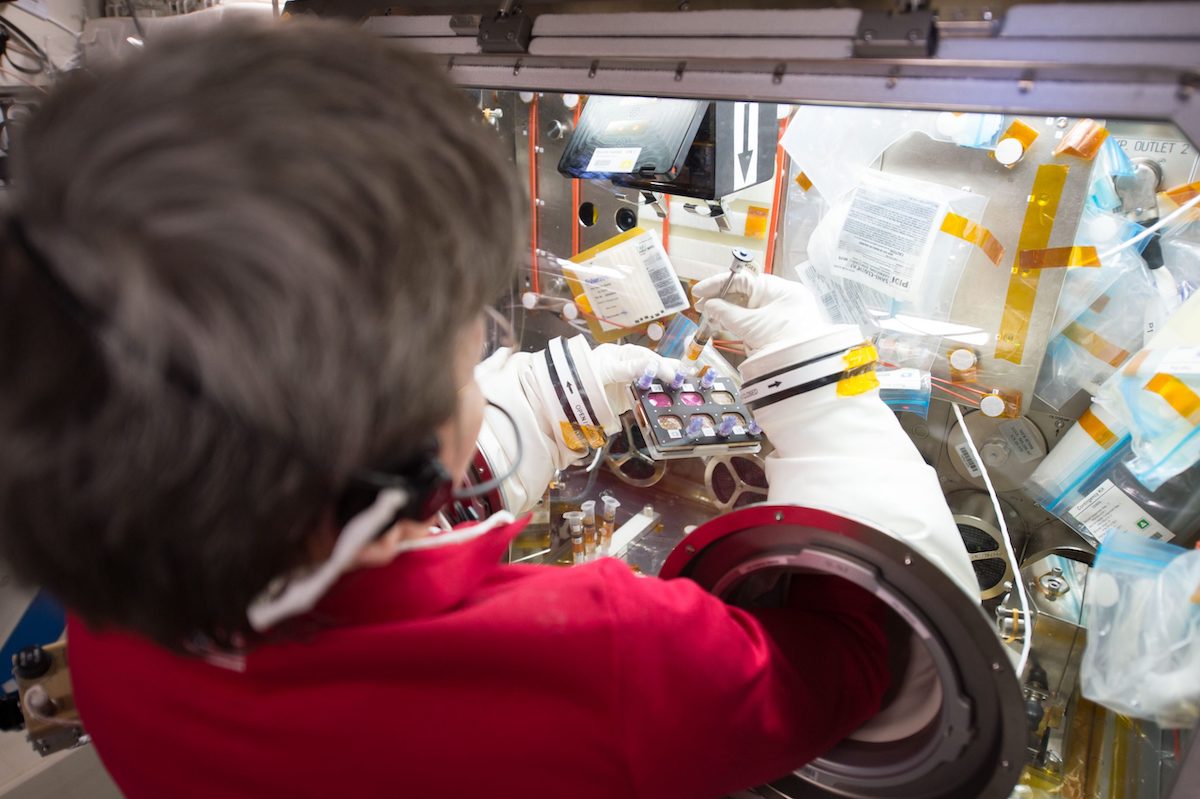Channels
Special Offers & Promotions
Science in Space to Cure Disease on Earth—the International Space Station National Lab and NASA Announce New Funding Opportunity

The International Space Station (ISS) National Laboratory is collaborating with NASA on a solicitation to advance research on cancer and other diseases. ISS National Lab Research Announcement (NLRA) 2023-10: Igniting Innovation: Science in Space to Cure Disease on Earth, in partnership with NASA’s Biological and Physical Sciences Division, will offer resource allocation and up to $5 million in total funding for an expected two to four awards for multiflight translational and transformative research and technology development projects.
Nearly 2 million new cases of cancer will be diagnosed in 2023, and more than half a million people will die from the disease this year, according to the American Cancer Society. Cancer and other disease-related research on the space station is of critical importance not only to the ISS National Lab and NASA but also to the Biden-Harris administration.
In 2022, the White House renewed the Cancer MoonshotSM—an initiative to prevent more than 4 million cancer deaths by 2047 and improve the experience of people touched by cancer. The National Low Earth Orbit Research and Development Strategy positions the space-based research community to uniquely contribute to the development of innovative new treatments for cancer and other diseases to improve the quality of life for patients on Earth.
This NLRA seeks proposals for multiflight research on the space station to address the goals of the Cancer Moonshot initiative or advance studies on other human diseases. Proposals should seek to accelerate the translation of stem cell- and organoid-based disease models and advanced technologies for biomanufacturing to make significant advancements in one or more of the following key areas:
- Accelerate scientific discovery leading to preclinical translation and clinical application advancing translation in bioengineering, biomanufacturing, biotechnology, cell biology, chemistry, material science, tissue engineering, or regenerative medicine leading to new insights.
- Foster outstanding collaborations between researchers, scientists, academia, industry, and government agencies to address complex challenges and promote knowledge- sharing by leveraging access to space and facilitating partnerships and interdisciplinary research projects to leverage diverse expertise and resources for innovative solutions.
- Initiate Earth- or space-based product development accelerating the path to new products, technologies, therapeutics, and solutions that have commercial viability and application in disease prevention, diagnosis, or treatment to improve medical outcomes on Earth.
- Identify areas where research and technological advancements in low Earth orbitcan push the boundaries of what is currently possible, leading to transformative breakthroughs in innovative treatment and patient care on Earth.
"We are proud to collaborate with our partners at NASA’s Biological and Physical Sciences Division to accelerate scientific discovery and further disease treatments for patients through space-based inquiry,” said ISS National Lab Chief Scientific Officer Michael Roberts. “Additionally, through this opportunity, we hope to enable access to space for advancing translational concepts that ignite innovation and fuel research and technology development for the benefit of humanity.”
“This research will also serve an important role in supporting deep-space exploration,” added Lisa Carnell, division director for NASA’s Biological and Physical Sciences Division. “To go farther and stay longer, we must understand the effects of prolonged exposure to space radiation on crew. Partnering with the ISS National Lab on this research is another exciting step toward supporting astronaut health during future Artemis missions.”
The Center for the Advancement of Science in Space, Inc., which manages the ISS National Lab, and NASA intend to select and fund spaceflight projects that lead to defined milestones in technological innovation on a roadmap that aligns with national research and technology development priorities and the ISS National Lab mission to benefit humanity and the U.S. economy.
This research announcement will follow a three-step proposal submission process (Step 1A: Concept Summary, Step 1B: Technology Roadmap, and Step 2: Full Proposal). Step 1A: Concept Summaries must be submitted by end of day on September 26, 2023.
Those interested in learning more about this research announcement can attend a webinar hosted by the ISS National Lab on August 24, 2023, at 1 p.m. EDT.
For more information about the funding opportunity and how the space-based environment can accelerate research and technology development for the benefit of life on Earth, please visit the official solicitation page.
About the International Space Station (ISS) National Laboratory
The International Space Station (ISS) is a one-of-a-kind laboratory that enables research and technology development not possible on Earth. As a public service enterprise, the ISS National Lab allows researchers to leverage this multiuser facility to improve life on Earth, mature space-based business models, advance science literacy in the future workforce, and expand a sustainable and scalable market in low Earth orbit. Through this orbiting national laboratory, research resources on the ISS are available to support non-NASA science, technology and education initiatives from U.S. government agencies, academic institutions, and the private sector. The Center for the Advancement of Science in Space, Inc. (CASIS) manages the ISS National Lab, under Cooperative Agreement with NASA, facilitating access to its permanent microgravity research environment, a powerful vantage point in low Earth orbit, and the extreme and varied conditions of space.
About NASA’s Biological and Physical Sciences Division
NASA’s Biological and Physical Sciences Division pioneers scientific discovery and enables exploration by using space environments to conduct investigations not possible on Earth. Studying biological and physical phenomenon under extreme conditions allows researchers to advance the fundamental scientific knowledge required to go farther and stay longer in space, while also benefitting life on Earth.
Media Partners


